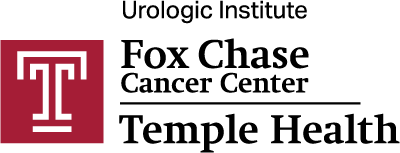Search Videos and More
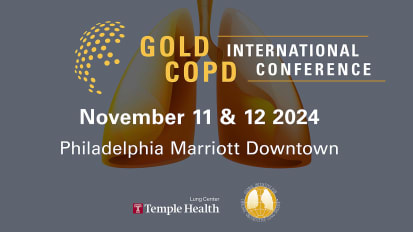 Course
Course
2024 GOLD International COPD Conference
Join us on November 11th and 12th for the world’s largest educational symposium on chronic obstructive pulmonary disease (COPD). The upcoming 9th annual GOLD International COPD Conference is once again a two-day event hosted in Philadelphia, Pennsylvania.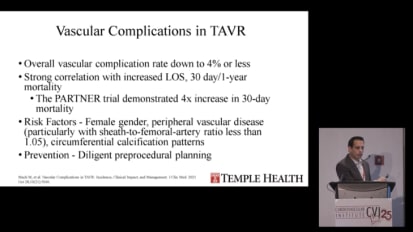 Course
Course
An Overview of Common Complications with Structural Heart Disease
The leading treatment option for AS and other structural diseases is transcatheter aortic valve replacement (TAVR). The overall complication rate of TAVR is relatively low -- around 4%. However, patients who experience complications have increased hospital lengths-of-stay and higher one-year mortality rates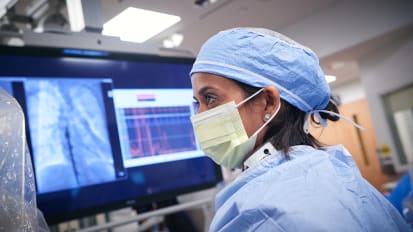 Video
Video
Pulmonary Arterial Hypertension and RV Failure
The average time from symptom onset to accurate diagnosis of pulmonary arterial hypertension (PAH) is 2.8 years, and more than half of patients have already progressed to functional class 3 or 4 by the time of diagnosis. Overlapping symptoms and clinical presentations can make it challenging to classify pulmonary hypertension patients correctly.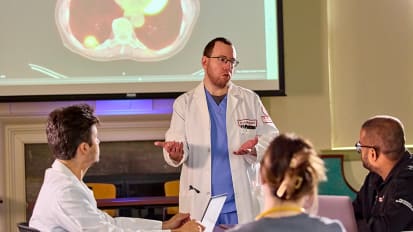 Course
Course
Pleural Effusions and Pleural Disease
Pleural disease is a common but frequently misunderstood clinical entity within the field of pulmonary disease. While up to 30% of individuals assessed may have pleural effusions, the specific diagnostic and therapeutic modalities undertaken have significant downstream implications for the diagnostic yield of studies, potential complication profile, and in the setting of therapeutic procedures, the extent to which these can either help to facilitate overall treatment or to reduce symptom burden in the case of palliative-type procedures such as tunneled pleural catheters or chemical pleurodesis for malignant pleural effusions. Video
Video
REBIRTH Trial: Evaluating Bromocriptine Therapy for Peripartum Cardiomyopathy
In this presentation, Dr. Deborah Crabbe, Cardiologist at Temple University Hospital and Professor of Medicine at Lewis Katz School of Medicine at Temple University, outlines the REBIRTH Trial, a randomized trial that reviews the use of bromocriptine therapy for the treatment of peripartum cardiomyopathy (PPCM) News
News
Update for Providers: Temple Healthy Chest Initiative’s Dual Screening Referral Process
 News
News
Benign Prostatic Hyperplasia
With one of the largest and most experienced urology teams in the region and the latest treatment capabilities, the Fox Chase-Temple Urologic Institute is a trusted leader in treating all types of urologic conditions. News
News
Fox Chase-Temple Urologic Institute: The Next Generation of Urology Care
Our innovative partnership unites the expertise of distinguished institutions within one health system, allowing us to tackle the most challenging genitourinary malignancies as well as complex benign urologic conditions.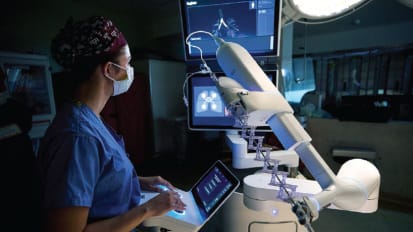 News
News
Advanced Bronchoscopic Services
As the only integrated pulmonary and critical care medicine, sleep medicine, and thoracic surgery department in the nation, the highly experienced, multidisciplinary team at the Temple Lung Center is consistently setting new standards of care in bronchoscopic research, technology, treatment, and recovery. Temple offers an enhanced patient experience with a single centralized location for both treatment and recovery. Video
Video
Earlier Detection and Treatment of Advanced Heart Failure
In this presentation, Dr. Eman Hamad, Director, Advanced Heart Failure and Transplant Program at Temple University Hospital, shares best practice approaches to physician collaboration for better patient outcomes. News
News
2024 Lung Transplant Symposium: Surgical and Medical Insights for Transplant Assessment and Management
Presented by Temple cardiothoracic surgery and pulmonary faculty as a pre-conference activity at the January 2024 STS Annual Meeting, this symposium, “Surgical and Medical Insights for Transplant Assessment and Management” will provide insight to best practice approach for surgical and medical care of lung transplant patients.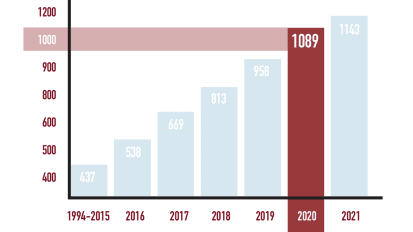 News
News
Lung Transplant Program Referral Information
The Temple Lung Transplant Program is a leader in both quantity and quality. It’s the nation’s highest volume program, but it also has the best one-year survival rates in Philadelphia and all of Pennsylvania.
